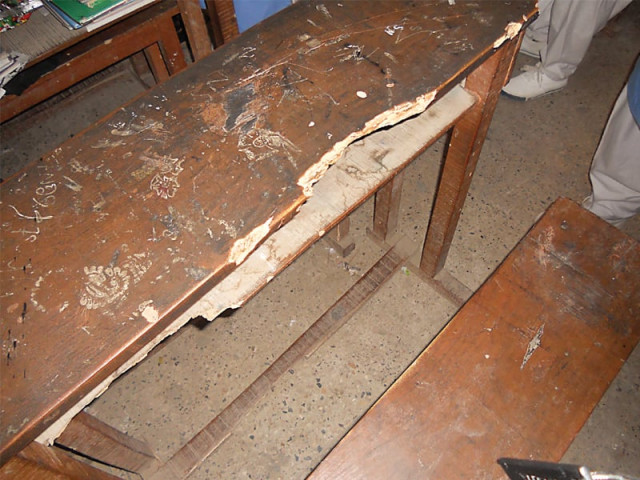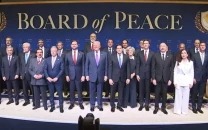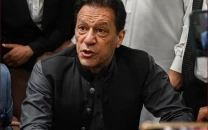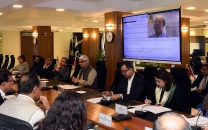‘Public schools would be very different if ministers’ children studied in them’
Legal experts and educationists gather to discuss state of education after the 18th Amendment.

A discussion was organised on Thursday by Idara-e-Taleem-o-Aagahi (ITA) in which lawyers, educationists and members of the civil society hit hard at provincial governments for failing to draw up legislation on education following the parliament’s decision to passage over two years ago.
Article 25-A of the amendment - the Right to Education - recognises free and compulsory education as a right for all children between ages five and 16. It also requires provincial legislatures to enact laws to guarantee this right.
Even though over two years have elapsed since Article-25 A was introduced, only Islamabad Capital Territory has promulgated legislation to implement the article. The bill is now waiting for the president’s approval and the civil society has already dissected it to find a number of flaws.
But even though criticism was being piled on the bill, this did not stop Sindh’s education minister, Pir Mazharul Haq, from drafting a bill - titled “Right of Children to Free and Compulsory Education - which is nearly a Xerox copy of the one drafted by Islamabad Capital Territory. One of the very few things that was different was the percentage of seats private schools were asked to reserve for poor students - they were bumped up from 10 to 20 per cent.
The provincial government’s failure to improve education and sluggishness had irked the session’s participants considerably - some of them spoke very bitterly, urging political parties and the members of the civil society to come out onto the streets and protest for this fundamental right.
“Had the children of governors and ministers studied at the public schools, their conditions would have ultimately improved,” said a youth parliamentarian, Varda Nisar.

Sindh Education Foundation’s director, Aziz Kabani, said, “Despite alarming statistics on education, we are not ready to recognise that the threshold has already been breached.” He added the time for activism was over, and now it was time to put “forced activism” to work. “Almost 50 per cent of children in grade five cannot read a simple Urdu story, according to last year’s Annual Status of Education Report,” Kabani told The Express Tribune. He added that financial problems, drop-outs and coordination between the federal and provincial governments will be some of the biggest challenges ahead.
When contacted, Ghulam Nabi, the deputy programme manager of Sindh Education Department’s Reform Support Unit, told The Express Tribune that at the initial stages, only a few renowned educationists and experts were tasked with the responsibility of drafting the bill. “Once it is prepared, the second stage, as planned by the Sindh education minister, is of multi-dimensional consultation from all relevant stakeholders.
This will allow the government to put draft before the provincial assembly for approval within two months.”
Nabi acknowledged the fact that Sindh has different education issues as compared to Islamabad Capital Territory. He said that the draft for Sindh’s bill was similar to that of the capital territory as the same people had drafted both of them. He added that all suggestions from educationists and experts will be considered by the government.
Published in The Express Tribune, December 1st, 2012.



















COMMENTS
Comments are moderated and generally will be posted if they are on-topic and not abusive.
For more information, please see our Comments FAQ